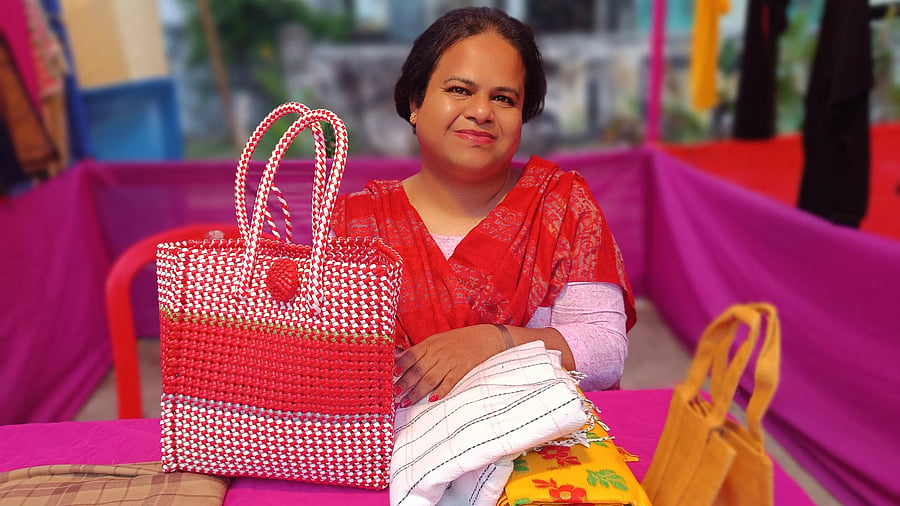
Ari Roy Choudhury from Nadia sits with their products at the Rongdhonu Mela in Kolkata on Sunday, November 23.
Credit: DH Photo/Arkadev Ghoshal
Kolkata: The challenges have been steep for Ari Roy Chowdhury - This transgender individual from West Bengal’s Nadia district wore a serious expression while explaining how they have to look for alternate ways of earning money to look after their elderly parents and members of the family, besides members of the community.
That’s when a youngster walked up to Ari’s stall at the first edition of the Rongdhonu Mela — an LGBTQ-centred popup flea market in Kolkata — and proudly introduced their mother. Warm smiles and happy banter broke out, and that appeared to be the leitmotif of this two-day event — organised by city-based Sappho for Equality — that concluded on Sunday.
Sappho member Sreoshi informed DH that besides the musical acts, the fair had 42 stalls with participants from not just Bengal but even from Bengaluru! The aim was to give people of the queer community a platform to sell their products, including those aimed at specific sections and people.
One such seller was Nishita, who had come all the way from Bengaluru. There was already a stigma around queers in society, they noted, and selling undergarments targeted at the community — as they were doing at the fair — would attract even more of it. That’s why events like Rongdhonu Mela were so important: Fairs and expos like these helped queer people access products made for them.
However, it was not all about such products. Animita, from Chandannagar in the Hooghly district, was selling crocheted items — from keychains to baubles to even coasters and placemats — and attracting customers irrespective of gender and sexual orientation.
Animita from Chandannagar crochets while showcasing her products at the Rongdhonu Mela in Kolkata on Sunday, November 23.
Credit: DH Photo/Arkadev Ghoshal
She told DH that although her creations were not pride-focused, they would be subjected to comments like “boys won’t like this colour” in events aimed at the straight crowd. That was not the case here.
The fair also extended a helping hand to women in general. For example, one stall had tea-garden workers from Darjeeling — like the widowed Sabita Chhetri who was trying to put her two children through college — selling pickles and momo. Another stall had members of the Azad Foundation encouraging women — especially those lacking other skills and education — to sign up to be drivers.